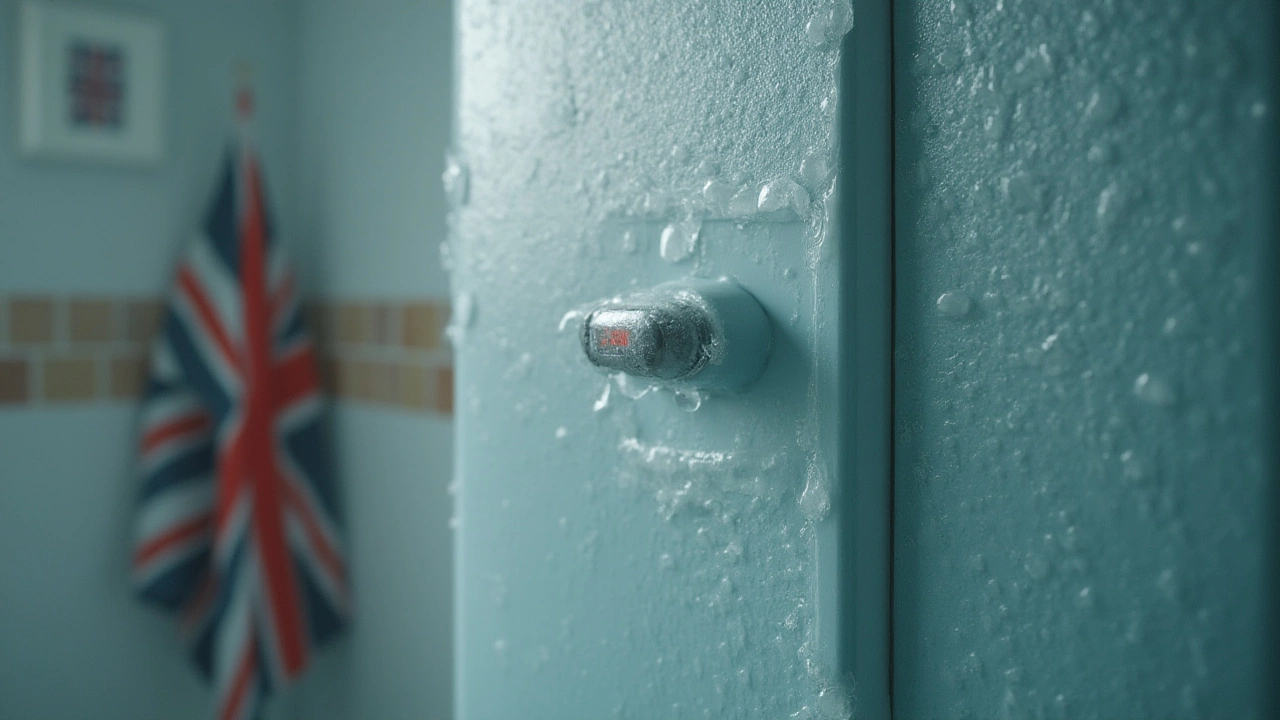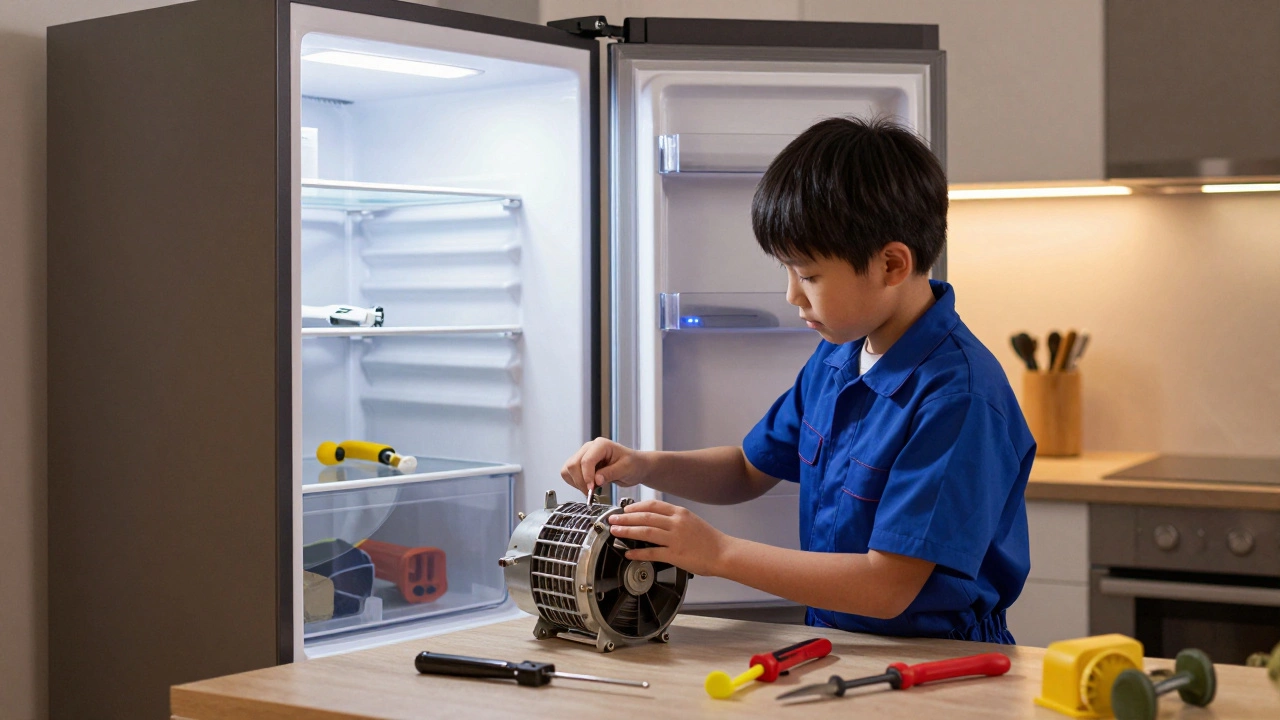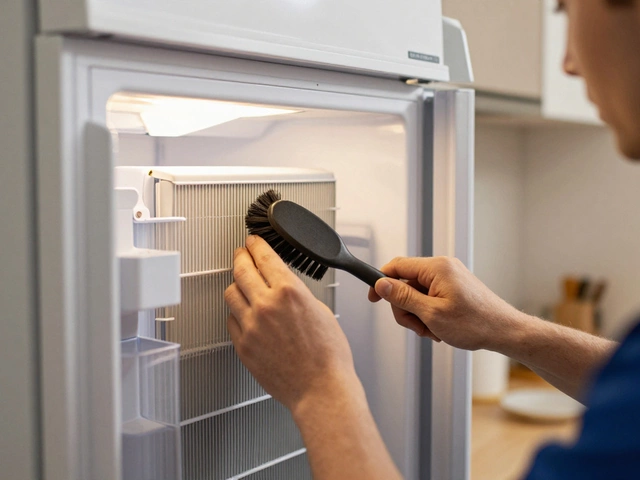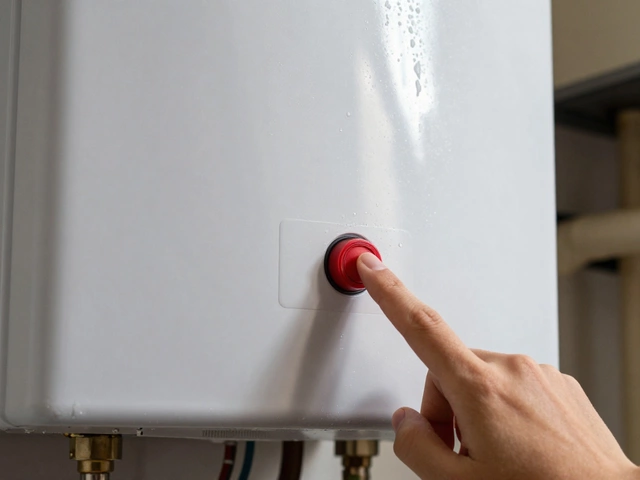Ask anyone who’s ever come home to a warm, soggy mess where their frozen peas used to be—the death of a freezer happens fast, and it’s never convenient. Most people don’t give much thought to their freezer until it starts making weird noises or ice cream comes out more like soup than a scoop. I still remember the night when Laura opened ours on a hot Auckland summer day, pulled out a squishy popsicle, and just sighed. There's a common belief that home appliances are built to last forever, but appliances these days, freezers included, have their own ticking clocks.
How Long Do Freezers Actually Last?
No one wants to deal with a freezer dying mid-week, but how long should you expect yours to last? Most chest and upright freezers last anywhere from 12 to 20 years. The broad range depends on how much you use it, how well you take care of it, and even the weather. A 2019 Consumer Reports survey found the average lifespan sits at about 16 years, but some folks squeeze out two decades if they’re lucky.
Modern freezers aren’t the same as the tanks built in the late 80s or early 90s. New ones come with better insulation and smarter defrosting, but they’re also packed with electronics that don’t always age gracefully. Most manufacturers, even big names like Fisher & Paykel or Samsung, only offer a basic one or two-year warranty—so they expect you’ll get a good decade at least, but after that, it’s luck and maintenance. The temperature swings in places like Auckland can make freezers work harder in summer, shaving off life if you don’t factor in ventilation.
Interestingly, chest freezers traditionally outlive upright models. Upright versions are handier for finding the frozen lasagna, but chest freezers are easier on their compressors and insulation. According to actual repair technicians, heavy daily use (like freezing fish for a hobby) can stress the motor, while more occasional use lets it keep humming for years.
| Freezer Type | Average Lifetime (Years) |
|---|---|
| Chest Freezer | 15-20 |
| Upright Freezer | 12-16 |
| Integrated/Compact Freezer | 10-15 |
You may wonder if your freezer will just suddenly stop, but they often give off signs before dying. Strange noises, uneven freezing, extra frost buildup, or running constantly are all early warnings. Ignore these at your own peril—the backup Ben & Jerry’s doesn’t stand a chance once the internal parts have called it quits.
What Wears Out (and What Doesn’t)
Freezers work hard in the background—compressors cycle on and off, door seals have to hold tight, and the inside fights off frost. But what actually gives out and ends the party? Most freezers bow out thanks to:
- Compressor failure: This is the heart of a freezer and usually the main thing that dies first. Once your compressor can’t pump refrigerant, it’s a goner. This failure can be sudden or start with groaning noises and erratic cooling.
- Thermostat or sensor problems: These send the signals telling your freezer to chill. Modern units have fancy electronic controls you need to baby a bit more than the old dial types.
- Door seal breakdown: These rubber gaskets hold the cold air inside. As they wear out (or get torn by heavy-handed snack runs), warm air sneaks in and your food defrosts or gets freezer burn, putting more strain on the compressor.
- Fan burnout: Interior fans circulate air to keep everything at one temperature. Once they stall, you’ll get hot and cold patches and food that goes off before it should.
- Tripped defrost heater: If you have a frost-free model, this little heater helps prevent ice buildup. When it fails, you’ll see walls of frost that slow cooling and can burn out other parts.
On the flip side, certain parts in a freezer almost never break. The insulation sandwiched inside the walls is usually good for the appliance’s entire life. Shelves and baskets might crack if overloaded, but these are easy swaps, not death sentences.
The main thing is that modern freezers are more likely to die from an electronic fault than a purely mechanical failure nowadays. There’s also the fact that repairs can cost almost as much as a replacement, especially for compressors. So, once the repairs add up to over half the price of a new freezer, most Kiwis just replace the thing and call it a day.
Tips to Make Your Freezer Last Longer
I’ve learned (sometimes the hard way) that how you use and care for your freezer really does affect how long it lasts. These are the no-nonsense, “do them or pay the price” tips any owner should know:
- Keep it clean and defrosted. Even frost-free freezers need the back vents and rubber seals wiped down every few months. If you’re rocking an older, manual-defrost model, get rid of ice build-up at least once a year—or more often if you live near the ocean, where salty air can speed things up.
- Don’t overload it—or keep it nearly empty. A full freezer actually stays cold more efficiently, but if you cram it so full that air can’t move, food won’t freeze evenly. On the flip side, running it nearly empty means the compressor kicks on more to keep things cold, wearing out the motor. I try to keep ours about three-quarters full (and have an excuse for those bonus tubs of ice cream).
- Check the door seals. Simple trick: shut a dollar bill in the door. If you can pull it out easily, the gasket probably needs a clean—or replacement. Gaps let cold air escape, forcing the compressor to work harder and shortening life.
- Give it room to breathe. Freezers need a gap behind for air to flow. About 10cm away from the wall is usually enough. Stick it in a tight cupboard or shove boxes right behind, and the extra heat cuts its life short. In our old flat, I slid our upright freezer out of a tight corner and noticed it was running quieter—and seemed to cool more quickly too.
- Surge protection matters. Power surges aren’t a daily event in Auckland, but it just takes one to fry the electronics, so chuck a surge protector between the freezer and your wall outlet if you want peace of mind.
One more thing—not all repairs are worth doing. According to New Zealand appliance guru Mark Gregory,
“Once a freezer is more than ten years old and starts showing serious issues, it’s usually time to replace it rather than repair. If the compressor goes out, just start shopping, don’t waste your money.”It’s blunt, but it’ll save you tears (and melted mince).

When Should You Replace Your Freezer?
No one wants to buy a new freezer just because it’s ‘old’, but sometimes the signs are impossible to ignore. Frequent breakdowns, rising power bills, loud cycling, or uneven freezing (like one corner being a glacier while the other is a puddle) are all classic hints that it's time to start looking for a new one. Older freezers, particularly those made before 2003, also guzzle about twice the energy of today’s best models—so you could cut your power bill by swapping out a dinosaur.
When we replaced our upright with a newer chest model last year, our weekly power bill dropped by about 15%. We also stopped worrying about food spoilage every time there was a thunderstorm or brownout. And some of the latest models have apps that send you an alert to your phone if the temperature rises, which would have saved us that sticky summer disaster a few years ago.
| Sign of Wear | What to Look For |
|---|---|
| Frequent Manual Defrosting Needed | Ice build-up returns days after clearing |
| Loud or Constant Noise | Banging, clicking, rattling even when doors are closed |
| Food Spoils Quickly | Frozen foods show ice crystals or spoil before expiry |
| Uneven Freezing | Patches of ice or thawed food in one area |
| High Energy Bills | Noticeable month-to-month increase in power use |
Energy efficiency standards keep improving, so even a mid-range 2025 freezer is probably using about 40% less power than a typical 2010 model. Plus, new freezers tend to be quieter and offer better features for food storage—adjustable bins, interior LED lights, and fast-freeze modes that help when you’re loading groceries after a massive supermarket run.
A new freezer isn’t cheap, but waiting until yours fails in midsummer can cost more as perishable food spoils. Watch for end-of-winter sales or appliance rebates from companies like EECA in New Zealand, and you’ll probably end up spending less in the long run.
Freezer Care Myths (and What Really Works)
Freezer lore is full of weird tips passed down from well-meaning relatives. But what actually works these days?
- Myth: Leave your freezer completely empty when cleaning. Truth: If you’re defrosting for only a few hours and you work fast, no problem. But a partly-full freezer keeps cold longer if your power goes out, so stash old bottles of water inside between shops.
- Myth: Turn the temp to the coldest setting for faster freezing. Truth: Most freezers work best at -18°C (0°F). Colder won’t make things freeze faster, just burns out the compressor faster and wastes electricity.
- Myth: Manual defrosting is pointless if you have a frost-free freezer. Truth: Even frost-free models need a bit of TLC. If vents ice up or the seal gets sticky, unplug and wipe it out to keep things running smoothly.
- Myth: ‘If it ain’t broke, don’t fix it.’ Truth: Waiting for an appliance to fail is risky. Doing quick checks—the seals, cleaning the vents, monitoring the noise—extends its life. Swapping a dodgy seal or cleaning the condenser coils yearly can buy you another few years easily.
- Myth: A modern freezer never needs to be turned off. Truth: It’s fine to leave it running for years, but if you’re away for an extended trip or during a move, turn it off and leave the door propped open to avoid a rotten, stinky mess.
One last thing—don’t be afraid to pull out the manual and read up on quirks for your specific brand. There are minor differences when it comes to defrost cycles, reset switches, or alarm beeps. Plus, sometimes you’ll find handy maintenance reminders hidden in the small print the salesperson never mentioned.
Freezer Life Cycle: From Fresh to Finish
Even with bulletproof care, your freezer life expectancy is bound by how it’s made and the realities of time. You can do a lot to stretch those years: careful loading, keeping door seals clean and tight, and avoiding big temperature swings by not shoving steaming leftovers straight inside. But no matter how well you treat it, every freezer eventually shakes, rattles, and croaks. Plan ahead, treat it kindly, and you’ll get your money’s worth—and far fewer late-night surprises of thawed groceries and ruined plans.
For those of us who count on a cold pizza or two to save dinner, there’s real peace of mind in a freezer that just works, year after year. So don’t take yours for granted. Give it some regular attention and it’ll keep your ice cream (and your dinner plans) perfectly frozen for as long as modern science allows.



